History
The origin of this spirit is lost in antiquity. It is known that the Celtic people of Ireland brought distilling to Ireland in the 5th century. The first distillers, wherever they were based, made spirits that were too strong to drink, so honey was added to sweeten them, as well as spices and other ingredients, making the first whiskies more like liqueurs.
The origin of the word whisky itself is also unclear. In the 17th century it was called strong water (English), usquebaugh or uisge beatha (Gaelic) or aqua vitae (Latin), the latter being popular with whisky lovers as it means 'water of life'. Whatever the origin, the word whisky did not gain official recognition until 1755 with its entry in the dictionary.
For centuries, whisky was a local drink. In the Highlands it was made in small stills and in the Lowlands large quantities were produced, mainly for export to England. Although the English would spoil it by re-distilling it with a vegetable product to make Gin – they will do anything to avoid accepting that Scotch whisky is good.
Between the 18th and 19th century, whisky was "legalised", i.e. an attempt was made to have fiscal control over the distilleries, which led to the birth of underground distilleries. In the end, the state legalised the use of small stills, thus ushering in the modern Scotch whisky industry.
In addition, in the 19th century, the popularity of whisky grew due to the invention of Coffey stills, or continuous distillation, which made whisky smoother and less intense. But the biggest uptick in its popularity was experienced thanks to phylloxera, an aphid that destroyed grape harvests in France, which reduced wine and cognac production and left people with no choice but to drink whisky.
And in the 20th century, oak casks that had previously held Sherry or Bourbon began to be used to mature the distillate, giving these spirits aroma, colour, flavour and character, but also thanks to the use of only water, barley and yeast, this Liquid Gold came to life.
Although Scotch whisky is the most popular whisky in the world (wherever I go and whenever I travel, I always find a piece of Scotland in the bars of the world), it cannot be said to be the best. For several decades now, different countries around the world have been specialising in the distillation of this drink, but it is the Japanese who take the lead in the World Whisky Awards. Japanese whiskies have been sweeping the board in recent years, although Canada, New Zealand, the United States and even India are achieving great quality in their distillates. In 2019, whiskies from these cold lands did not win in any category, but let's hope they receive more in the coming years, as I wouldn't trade Scotch whisky for that of any other country.
Whisky Regions
Whisky distilling regions: Islay, Lowlands, Highlands and Campbeltown. These are the generic ones, as within the Highlands we have Speyside and Islands. The regions just help us to label the whisky, as nowadays a typical smoky whisky from the Islay region can also be made in the Highlands, for example.
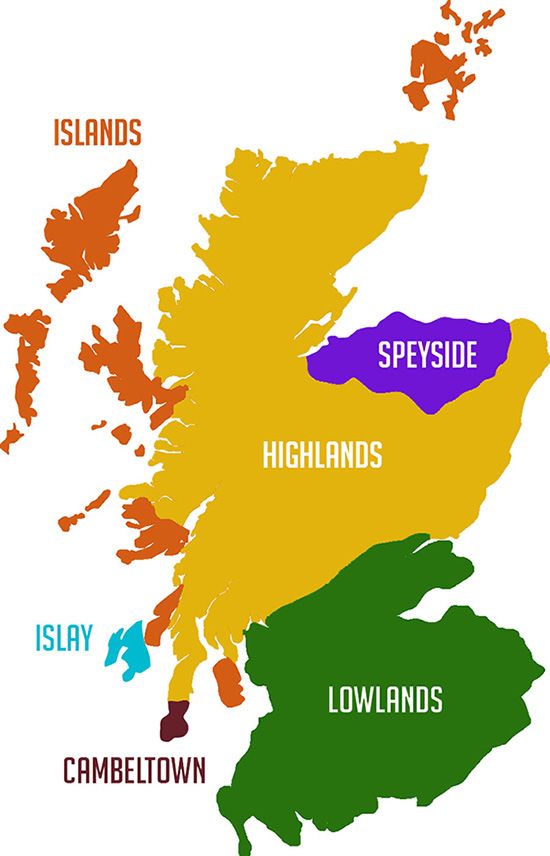
Types of whisky
Within the regions, there are also different types of whisky. I will summarise very briefly what they are:
Single Malt
This is single malt whisky. “Malt” refers to the process of the germination of the grain: malting. "Single" refers to the origin of the whisky, a single distillery. The grain used for this whisky is barley, no other grain can be used. This whisky can be blended with another malt, either of the same or a different age, but they must be from the same distillery. It is the most popular whisky in Scotland. My favourites are the smoky ones.
Single Grain
This would be whisky from a single grain. This can be barley, rye, corn or wheat, or unmalted grain. It is not very well known and is usually used to make blended whisky. I have never tried it, although I have a bottle of this type, a Clan Denny 21-year-old, which I hope to open soon.
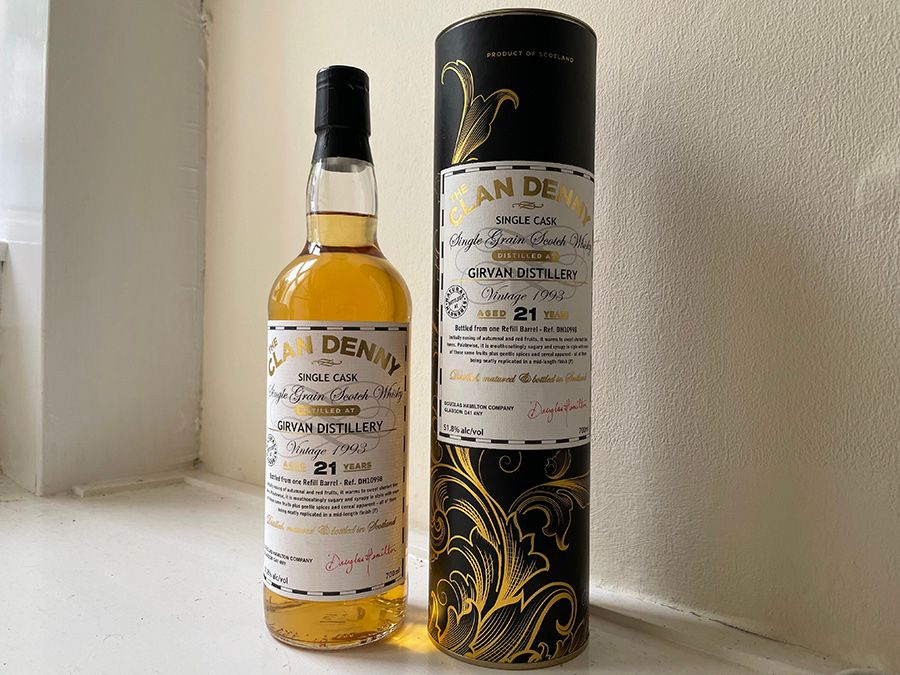
Blends
This is blended whisky. It is obtained by blending different whiskies, it must have at least one Single Grain and one Single Malt, but it can have many more. It is usually a very popular whisky. They are the most typical, as whiskies such as Ballantines or Johnnie Walker are of this type.
Blended Grain
This is one of the rarest whiskies on the market. To produce this type of whisky, you have to combine two or more Single Grains. I can say from my personal experience that the most famous Blended Grain whisky. Compass Box Hedonism, does not disappoint, and is very good value for money.
Blended Malt
Another rare whisky. These whiskies are produced by blending two or more Single Malts from different distilleries. The most popular is Monkey Shoulder, but there are also lesser-known whiskies such as Glencoe MacDonald's 8-year-old with Cask Strength 58%. You can find them, as well as all other Blended Grains, at a good price.
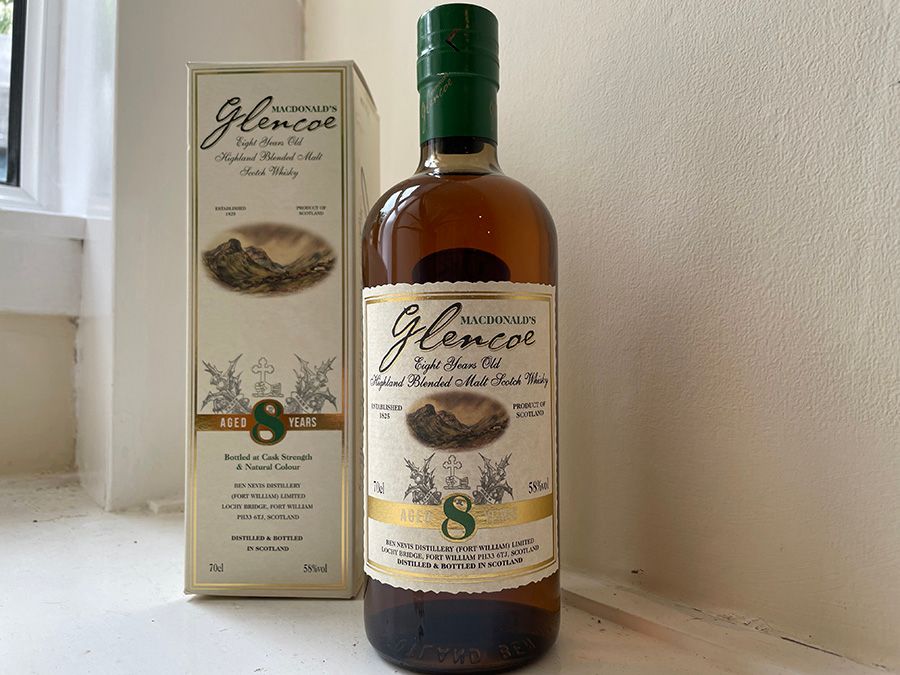
I would like to clarify one thing: BOURBON IS NOT WHISKY. What a pleasure it is to get that off my chest. Distillation was brought to the United States in the 18th century by Scottish and Irish settlers. Although the origin of Bourbon is not well documented, it is known that it began to be distilled in the same century that distillation arrived.
Experts have always included this drink in different types of whiskies, because the process to distil this spirit is the same as any other whisky, but (of course there is a but) the grain used has to be at least 51% corn, sometimes up to 70% or 80%, the rest being made up of different cereals. Bourbon also has no minimum ageing period, so products that have been matured as short as three months can be sold as Bourbon (any Bourbon aged less than 4 years has to be indicated on the label). In addition, this beverage has to be produced in the United States.
This is only a general overview of this drink, as there can be many variants of it. The most famous ones are Jim Beam, Wild Turkey or Jack Daniels.
If you want to immerse yourself more in the wonderful world of whisky, I recommend the book “Illustrated Atlas of Whisky”, by Michael Jackson (not the singer). It costs about 15€ and contains a lot of information to help you understand this drink and its origins.
Now comes the best part; it's time to decide what to order in the pub! And with more than 3,000 varieties, whisky is probably the most complicated drink to choose. Anywhere you go you can ask for "a dram of whisky, please", to which the bartender will reply "Which one, pal? So here are a few recommendations to make your choice easier:
Lowlands
Glenkinchie 12. Sweet and smooth, the whisky of Edinburgh.
Auchentoshan Heartwood. Matured in bourbon and sherry casks.
Highlands
Glengoyne 12. Whisky that is very good value for money.
Ardmore. From the region of Aberdeenshire comes this whisky, and it does not disappoint.
Highland Park 12. From the remote Orkney Islands, a favourite of the Scottish people.
Old Pulteney 12. Possibly one of the finest whiskies in the Highlands.
BenRomach 10. One of the best whiskies of recent years at an affordable price.
Campbeltown
Springbank 10. A quality whisky, and somewhat rare to find.
Islay
Laphroaig 10. Once described as "a hospital on fire". Smoky whisky. If you like it, you'll fall in love with it. For the brave.
Kilchoman. I always have a bottle at home. Islay's only independent distillery.
Caol Ila 12. This was the beginning of my relationship with smoky whiskies and has been my favourite ever since.
Blended
Great King Street Artist's Edition. One of my favourites, a quality gift for someone who likes whisky. Easy to drink, and with a scandalously cheap price. For UK residents, here is a link where you can find whisky at a good price.
To buy If you have check-in luggage, I recommend Royal Mile Whiskies (379 High Street Edinburgh EH1 1PW, opposite St. Giles Church, maps). Best prices in Edinburgh. If you can't take it with you, the Duty free at the airport also offers a wide range of whiskies.
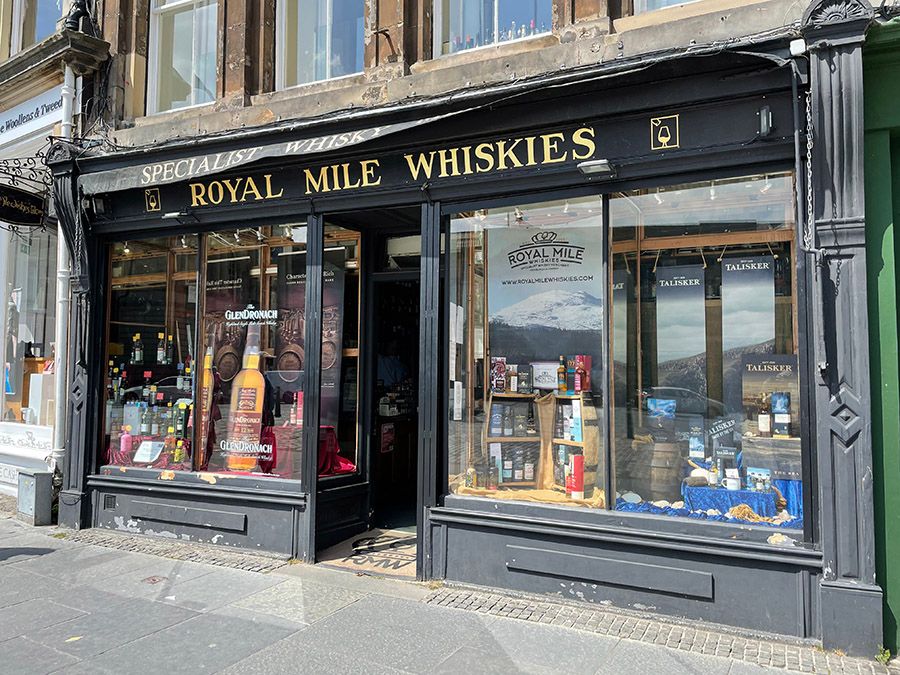
Another shop I recommend is Cadenhead's Whisky Shop (172 Canongate, Edinburgh EH8 8DF maps), "Scotland's oldest independent bottler" is over a century old and experienced in selling "the water of life". They buy casks from distilleries which they bottle themselves, so you will find unique whiskies at a very reasonable price.
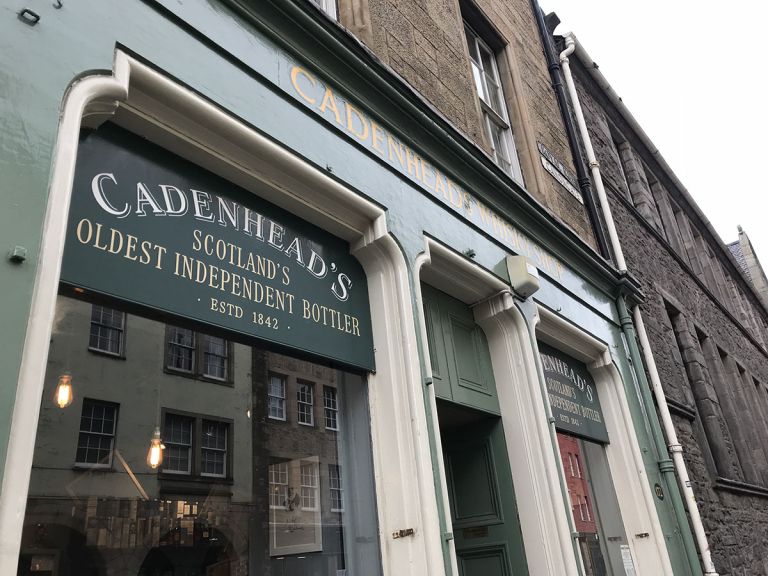
I think that with this small article (and I say small because the world of whisky is much more extensive) you are now ready to survive in the pubs of Edinburgh, Stirling or any other city in Scotland. Cheers! or as they would say in Scotland "Slainte mhath" (slan-ye-var).